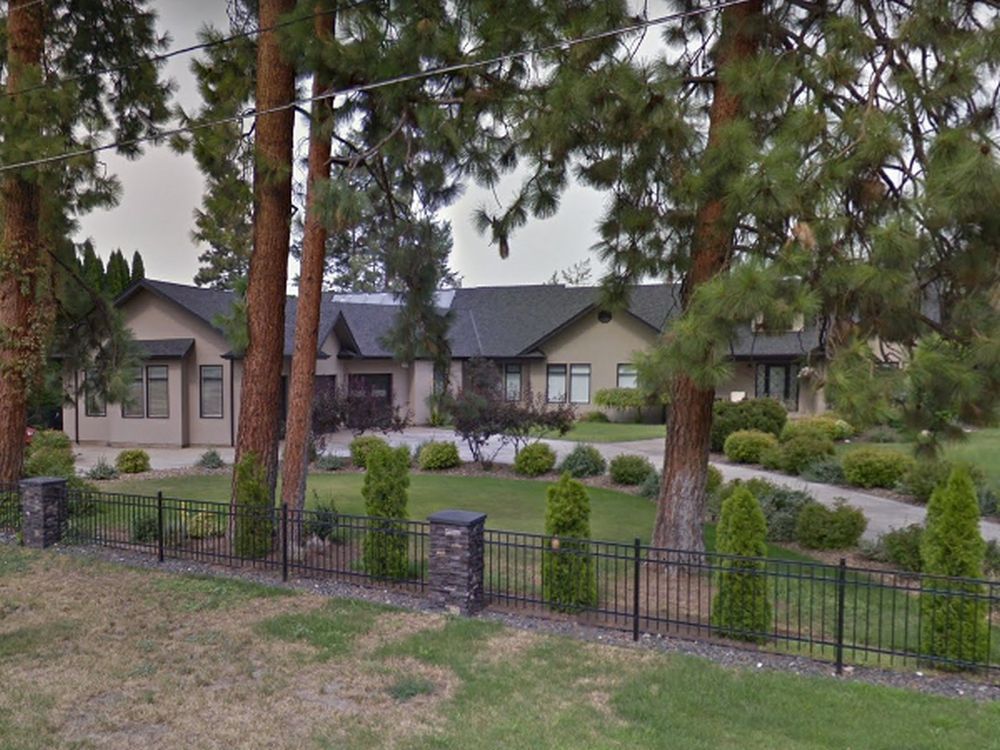Accused in alleged B.C. stock-fraud money laundering scheme deny wrongdoing

Credit to Author: Gordon Hoekstra| Date: Tue, 03 Dec 2019 02:45:32 +0000
A B.C. Civil Forfeiture Office’s legal action to seize two Kelowna-area properties allegedly linked to a $200-million-plus international stock fraud was done in a “cavalier and abusive manner,” according to the accused’s legal response.
In responses filed on Nov. 27 in B.C. Supreme Court, Cuatro Cienagas Inversiones Ltd., Benjamin Thomas Kirk, Kayley Tyne Johnson and Carlos Gomez Brana deny any knowledge of the stock fraud and say to their knowledge they have not been beneficiaries of the scheme.
The defendants deny laundering money from the stock fraud scheme using a $1.6-million Kelowna home and a $524,000 condo at nearby Big White ski resort.
They say the civil forfeiture claim should be dismissed, arguing the forfeiture office has no evidence whatsoever linking the defendants to the stock fraud and money laundering.
The civil forfeiture office launched the suit “primarily on its own initiative and in the absence of a bona fide Canadian or other law enforcement investigation regarding proceeds of the unlawful scheme being linked to British Columbia,” states each of the responses filed by Kirk, Johnson and Brana.
Kirk and his spouse Johnson say they have never had any interest in the Kelowna-area properties and were only managing them for Brana, who Kirk has previously known.
Brana, a Mexican resident, says he is an investor and businessman who purchased the properties in B.C. through the company Cuatro Cienagas, of which he has sole control.
In his filings, Brana said that Cuatro Cienagas held an account at WB21, labelled a virtual bank, named in the civil forfeiture suit, but the account was in “no way, shape or form” connected to the alleged stock fraud scheme.
The B.C. Civil Forfeiture Office alleges that Cuatro Cienagas Inversiones was set up in B.C. to receive and distribute money from a major stock fraud investigated by the U.S. Securities and Exchange Commission.
In the fall of 2018, the SEC said it halted the penny stock fraud scheme by freezing assets of two individuals, including a British citizen, Roger Knox, and their companies.
The SEC said the pump-and-dump scheme generated more than US$165 million in illegal sales of shares of at least 50 micro-cap companies, companies with a share value of $50 million to $300 million.
Knox, and his Swiss-firm Wintercap SA, formerly Silverton SA, concealed stock ownership, allowing stocks to be pumped up in price and dumped for a profit, according to the SEC.
The SEC said it received assistance in its investigation from numerous organizations, including the RCMP and the B.C. Securities Commission.
Knox faces criminal charges in the United States for the scheme.
The SEC’s complaint also alleges Michael T. Gastauer, a German citizen, aided the fraud by establishing several U.S. companies, including virtual financial firms, including WB21, and allowed Knox to use the bank accounts to disburse the proceeds of his illegal stock sales.
According to the civil forfeiture office’s court filings, on March 22, 2017, Cuatro Cienagas used the WB21 accounts to transfer $101,000 to Norwich Real Estate Services Inc. in Kelowna. On May 10 and 11, $1.529 million from the WB21 accounts was transferred in three instalments to an unnamed Kelowna law firm.
On May 18, Cuatro Cienagas bought the Mission Ridge home for $1.6 million without a mortgage.
From May 30 to Oct. 23, 2017, another $250,000 from WB21 accounts was transferred in three instalments to a Bank of Montreal account. In December, Cuatro Cienagas also directed the Swiss firm, formerly known as Silverton, to transfer in three instalments $548,000 from another Bank of Montreal account to the unnamed Kelowna law firm.
On Jan. 10, 2018, Cuatro Cienagas bought the condo at Big White ski hill.
The unnamed law firm acted as Cuatro’s lawyer in the property purchases, according to the court filings.
According to the civil claim, Kirk was charged in 2013 of violations of the U.S. Securities Act. In 2015, Kirk admitted to breaches of the Alberta Securities Act and agreed to pay a fine of $100,000.